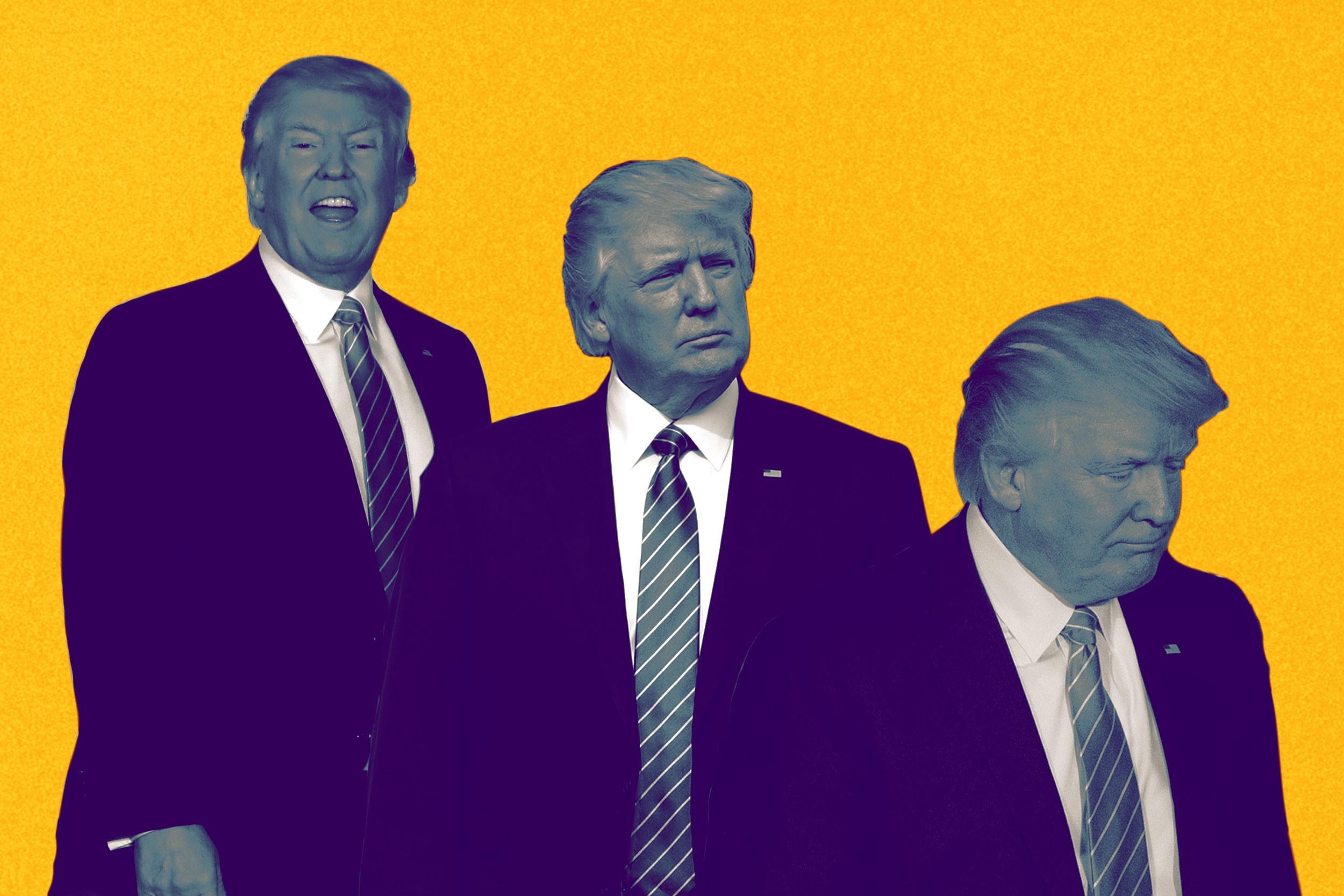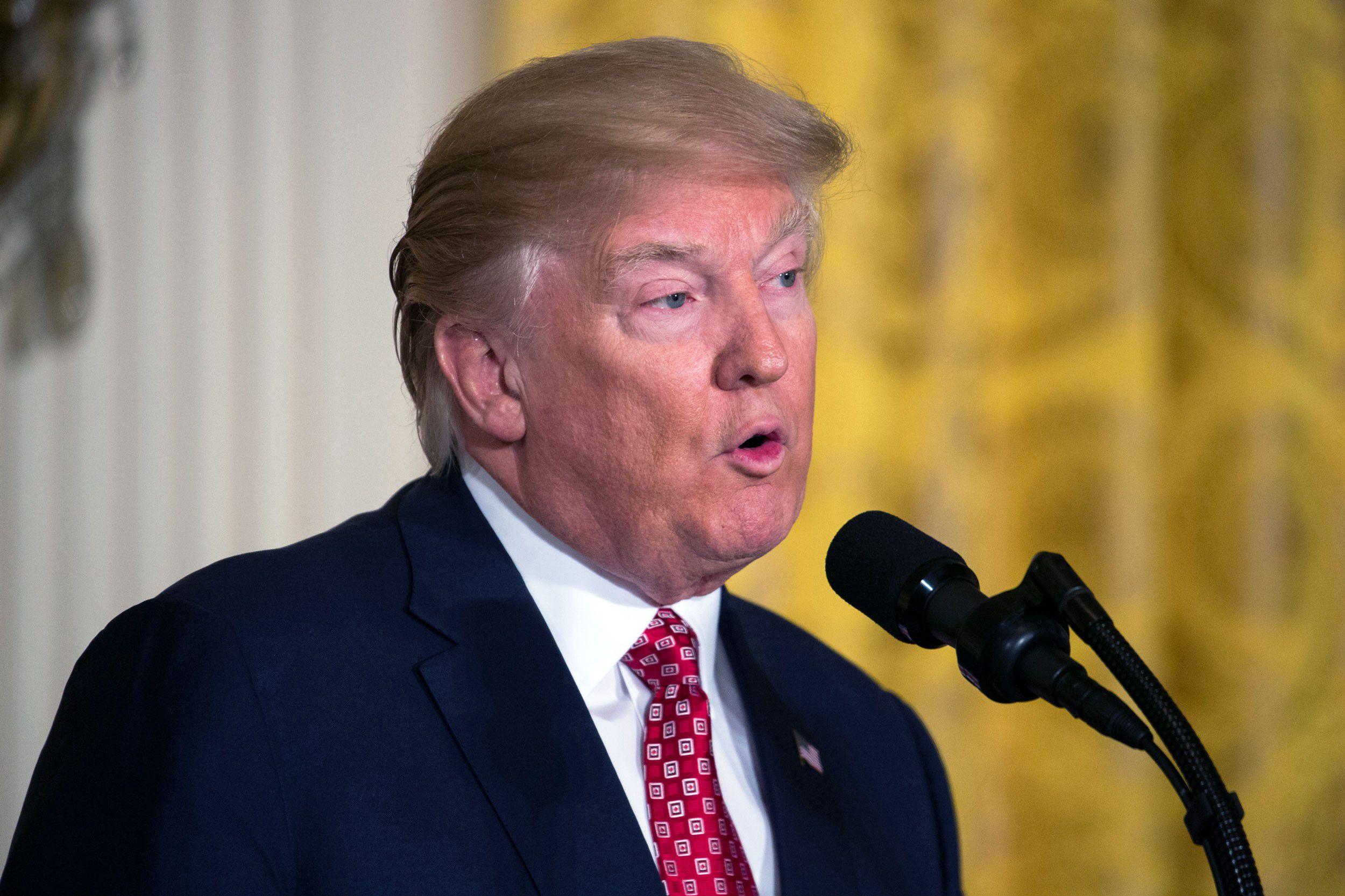
To Donald Trump, fame is not something that just happens, a tan gained from too much time spent in the spotlight. It’s capital to be earned — won, fought for, wrested away from less charismatic, lower-energy rivals. He was a famous businessman, which he turned into a gig as a reality TV star. He was a reality TV star, which he turned into a gig as a political pundit. He was a political pundit, and then rode his fame-getting methods all the way to the White House. But now, almost a month into his presidency, it seems that in the Oval Office, fame — his particular brand of it, at least — might not be as effective as it has been elsewhere.
Trump’s philosophy has long been to stay in the headlines in any way possible, and he’s welcomed bad publicity just as eagerly as the good kind. Even in the very recent past, he has leaned into controversy and let it carry him — and his talking points — onward.
In 1990, he relished his affair with actress Marla Maples dominating New York tabloids. In 2004, he went so far as to suggest that the bankruptcy filing of his casino company was a mark of how hot the Trump brand was. “He is of the mindset that the more his name is dropped, the more a kind of hypnosis, for lack of a better word, there is to the American public,” Jim Dowd, CEO of the firm that did public relations for Trump from 2004 to 2010, told Politico in July.
And while much has been made of his embarrassment at the 2011 White House Correspondents’ Dinner, he was still content for years to soak up whatever attention he could by trumpeting bogus “birther” claims — a conspiracy that he did not invent, but of which he enthusiastically made himself the figurehead. Claims that he was unfit for office — by Hillary Clinton, Barack Obama, primary rivals, congressional Republicans, members of the media, and countless others — became a rallying cry for his campaign and supporters. He turned the presidential election cycle into a circus, and, resoundingly, it worked.
It’s only natural, then, that he has positioned his aides as celebrities, dispatching them in droves to Sunday talk shows. In response, late-night programs, most notably Saturday Night Live, have seized on them as personalities. SNL has twice lampooned press secretary Sean Spicer as a chewing-gum-addled, emotionally unstable sycophant, played by Melissa McCarthy. Senior adviser Steve Bannon popped up as the Grim Reaper in the set’s Oval Office. Kate McKinnon, the Hillary Who Wasn’t, has now portrayed education secretary Betsy DeVos, Attorney General Jeff Sessions, and presidential counselor Kellyanne Conway. More skits about the administration are sure to come — chief of staff Reince Priebus, Spin noted this week, “to this point has been too milquetoast to require an SNL impersonation,” but it’s hard to imagine that lasting — and several actors have made a show of volunteering their services.
It’s hard to imagine a similar depth of characters emerging from Obama’s White House. Of his three press secretaries, two were portrayed on SNL, and only briefly: Taran Killam’s Jay Carney was a nameless plus-one in a 2013 Kerry Washington sketch, while Bill Hader played Robert Gibbs in a single 2010 cold open; the joke was that Greta Van Susteren (Kristen Wiig) wouldn’t allow him to speak. Whatever in-house biases might be at work with a cast that serenaded Obama with a song during the first SNL episode of the Trump administration, the fact stands that Obama’s press secretaries were not exactly household names.
Not so, of course, with many of the staffers selected by Trump, whose commitment to the value of a good character led him to bring Omarosa Manigault, the former heel of The Apprentice whom he once suggested had “a problem or something,” into his White House. Even Trump’s Supreme Court nomination announcement was a ratings-engineered stunt, carefully programmed for maximum publicity. For all of the outside criticism that he is running a reality show presidency — which sounds awful and improper and 10 other kinds of bad — that’s what he wanted. Trump’s staffers and political appointees are famous by design.

Only maybe things haven’t turned out quite the way that Trump wanted. Reports have surfaced that SNL’s skits have rattled many at the White House. When Spicer proposed making a joke about the McCarthy sketch at a press briefing — perhaps by firing a Super Soaker, as McCarthy’s Spicer did — it was reportedly Trump himself who vetoed the idea. The president, who often tweets about the show, is said to have been particularly upset by the Bannon sketch, in which he, played by Alec Baldwin, was reduced to sitting at a child’s desk and fiddling with a toy. When Spicer’s bombastic first press briefing in January earned him immediate meme-ification, Trump seemed to notice, reportedly complaining about Spicer’s suit.
Trump’s showmanship backfired again last weekend, during the president’s dinner with Japanese Prime Minister Shinzo Abe. The meal, held on a terrace at Trump’s Mar-a-Lago resort that was visible to club members, was widely interpreted as the optics-conscious president trying to display himself as a statesman. Then news broke mid-meal of a North Korean ballistic missile test, and aides scurried around the two leaders, using the light from a phone to illuminate what was reportedly a piece of intelligence. In the following days, Trump and his staff were sharply criticized for potentially mishandling intelligence, with House Oversight Chairman Jason Chaffetz launching an investigation into the matter.
It seems that Trump is beginning to realize that publicity is one thing for a famous businessman or a TV star, and another entirely for the president. Consider that Spicer repeatedly called negative coverage of Trump “demoralizing.” That Trump on Wednesday said that Michael Flynn, who earlier in the week either resigned or was fired from his post as national security adviser, depending on whom you ask, was treated “very unfairly.” That a source described as very close to Andrew Puzder, Trump’s pick for labor secretary who withdrew his name from consideration on Wednesday, said Puzder was “very tired of the abuse.” The messaging from the White House is clear: The negativity is wearing on the Trump administration.
To be sure, feigning victimhood is its own PR strategy, and one Trump has often used in the past, as when he turned complaints about media coverage of his campaign into an ongoing war against the media. But while fame may not be a zero-sum game, the attention paid to the president is. In the nearly four weeks he has been in office, Trump has accomplished remarkably little of substance. Though he has historically been a master of well-timed distractions, it seems as though the trappings of fame — the constant publicity; the public bickering; the superstar staff — have only bogged his administration down in controversy.
The presidency, after all, is in many ways a boring affair, administrative, legislative, and bound by policy; visible, but quiet. Trump’s political rise was performative, loud, and pyrotechnic, and now the spotlight, so frequently welcome, seems, at times, to blind him. His response is to court the kind of attention he has thrived under in the past. On Saturday, he will hold the first rally of his 2020 presidential campaign. For that day, at least, he will once again enjoy a much more manageable kind of fame.

